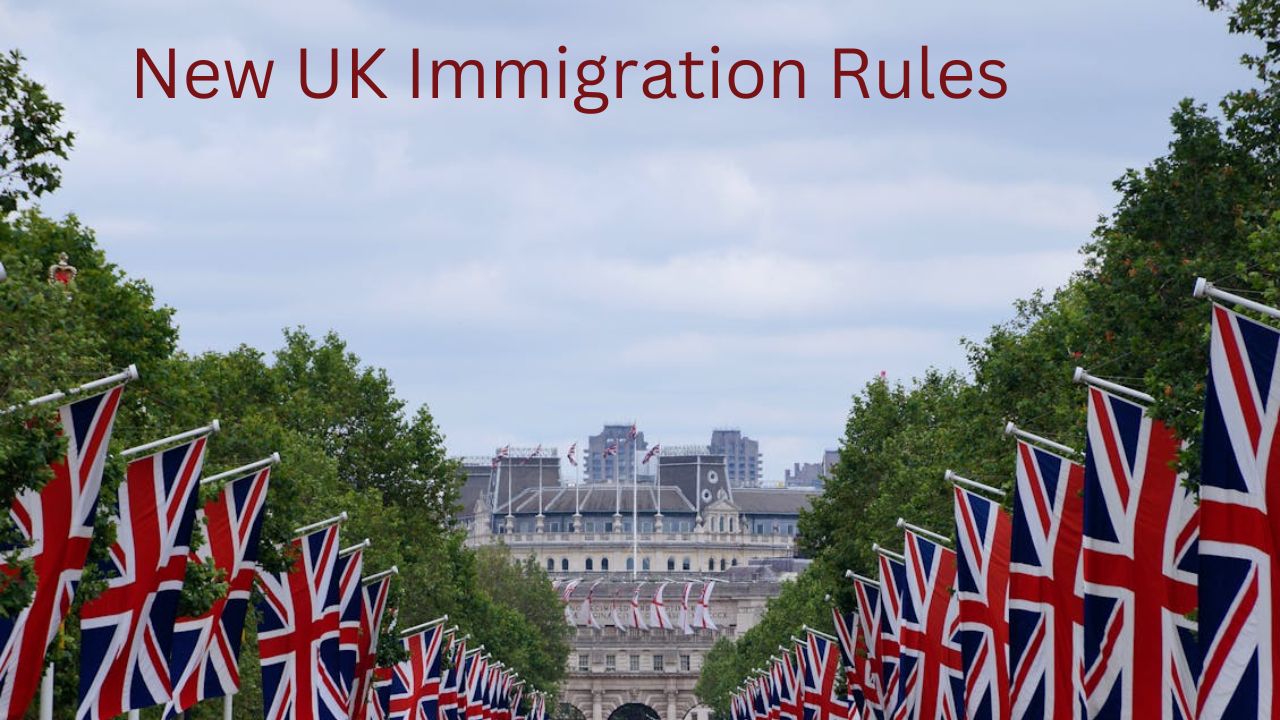Brexit has triggered major revamps in the UK’s immigration rules. The new UK immigration rules, which are part of the UK government’s policies, have implications for how the country’s immigration policies function. These goals are to mitigate the problems that the UK faces, such as migration management, security concerns, and the recruitment of professionals.
Introduction to the Points-Based System
The UK government has implemented a points-based system for immigration, just like other countries such as Australia and Canada. One of the functions of the point-based system is to draw highly skilled and talented people from each corner of the globe while limiting immigration.
Points are given based on these variables; they include age, English language proficiency, job offer, qualifications, and salary level. The new immigration system replaces the previous Tier 2 and Tier 4 visa routes and aims to create a smooth process for those wishing to live and work in the UK.
The new UK immigration rules took effect in 2024. These include an increase in the salary requirement for the skilled worker visa to £38,700 per year on April 4, 2024; a spouse visa to £29,000 on April 11, 2024; and healthcare and care worker visa restrictions.
The new UK immigration rules: What are the changes?
- Dependents cannot accompany international postgraduate students if their course is not designed as a research program.
- Social care workers can no longer bring their family members on a visa together.
- The baseline minimum salary climbed to £38,700 for an individual ready to be sponsored for a skilled worker visa, compared to £26,200 in 2023. In addition, the job list has been shortened and renamed the Immigration Salary List.
- The spouse/partner visa minimum income was set at £29,000 as of April 11, 2024, and after that, the plan is to increase it to £34,500, but without stating the exact timeframe.
1. A new rule for migrant visas for UK student visas

Since January 1, 2024, postgraduate international students coming to the UK are only allowed to bring their family members to the UK if they are pursuing an MPhil, PhD, or other doctorate (at RQF level 8) or a research-based higher degree.
This change in policy was announced by the then-Home Secretary, Suella Braverman, in May 2023. In the past, international students (on postgraduate studies) could bring their dependents by satisfying the UK student visa.
Reports indicates that 486,107 study visas were issued from 2022 to September 2023 by the government.
Of those 34,000 visas, half were granted to the citizens of India, China, Nigeria, and Pakistan.
Those on postgraduate courses could also apply for visas for qualifying dependents: spouses (male or female), civil or unmarried partners, and children under 18.
Note that students with already-graduated degrees can remain in the UK for two years—three years for those with doctoral degrees—to work under a graduate visa.
The United Kingdom has not canceled the Post-Study Work (PSW) visa that was to be discontinued as per the recommendation of the Migration Advisory Committee (MAC).
The guidelines now require students to meet tougher English language requirements and show evidence of sufficient funds to support themselves.
These changes have made it more challenging for universities to attract international students, but they also ensure that only serious and qualified applicants are granted visas.
2. Social Care Workers New Visa Rules

In December 2023, the UK government said that Health and Care Worker visa holders will no longer be permitted to bring family members. The UK Home Office implemented new visa rules that restrict overseas care workers from bringing dependent family members to the UK.
This decision is to help address what the Home Office has described as a “disproportionate” situation where 120,000 dependents accompanied 100,000 workers on the care visa route in 2022, alone.
The reason, according to the home office, is to combat visa abuse and reduce “unsustainable” levels of legal migration.
The reforms include the establishment of a national career path for care workers and a new care qualification to boost the homegrown workforce.
This restriction may pose challenges for professionals seeking to relocate, impacting family unity and support networks.
The move reflects tightening regulations in specific sectors, potentially affecting recruitment and retention in the social care field. Balancing immigration control with workforce needs remains a complex issue.
3. Skilled Workers New Rules
The new rule in UK immigration regarding the skilled worker visa is a significant change that affects both employers and prospective migrants. The baseline minimum salary for sponsorship is now £38,700 from £26,200. This means that employers must offer a higher salary to sponsor foreign workers under this visa category.
Also, the ‘going rate’ minimum salary specific to each job has also increased significantly. To be eligible for the skilled worker route, the role must appear on the government’s list of eligible occupations under the UK immigration new rules.
The list also specifies the ‘going rate’ for each role and minimum salary requirements for ‘new entrants’ and other workers. Namely:
If the occupation code sets out a higher going rate of salary than the relevant absolute minimum threshold, this is the salary that must be paid.
In April 2024, the Home Office moved to the Standard Occupational Classification 2020 coding system; employers are advised to check the new system codes on all applications to ensure compliance with the correct system.
Qualifying new entrants benefit from a reduction in the salary threshold to £30,960 and a lower salary threshold than ‘other workers’ in the same role.
In addition, anyone relying on the new entrant rate must be able to show that they meet the criteria, i.e., they are under 26 years of age at the time of making their visa application, and they are either:
- sponsored in a postdoctoral research position, or
- working towards professional qualifications, chartered status, or registration.
New entrants are, however, limited to three years of leave. After this period, they must make a further application if they wish to remain in the UK. If continuing under the Skilled Worker route, they would no longer be a ‘new entrant’.
About the ‘Shortage Occupation List’
The “Shortage Occupation List” helps employers fill vacancies in key sectors.
These jobs have a lower salary threshold, making it easier for applicants to gain enough points to get a visa.
The list includes:
- Health and care workers
- Pharmacists
- Graphic Designers
- Architects
- Veterinarians
- Engineers
- Software Developers
4. Spousal/Partner new UK immigration rules
The spouse/partner visa minimum income was set at £29,000 as of April 11, 2024, and after that, the plan is to increase it to £34,500, but without stating the exact timeframe.
The UK partner and spouse visa is one of many family visas that is intended for an eligible foreign national who is the spouse or partner of a British citizen or someone settled in the UK.
The spouse visa (the partner and spouse visa) makes it possible for a qualifying foreign national to join his or her partner in the UK if he or she is a citizen of the UK or a settled person (for example, with Indefinite Leave to Remain or as an EU Settled Status).
To be able to live with your partner in the UK, you need to apply for a spouse visa. Understanding criteria: marrying persons, persons in civil marriage, or those who are not married are eligible to apply.
To be accepted for the spouse visa, an applicant and his partner should be in a real relationship, meet monetary criteria, and confirm sufficient accommodation.
Following the approval, the partner and spouse visa is granted for about 2 years and 9 months. Secondly, you can apply for an extension, which allows you to later obtain ILR.
This saves you from the rules of the immigration system. Following the ILR, you may, possibly, need to apply for British citizenship by marriage as well.
The new UK immigration rules points-based system
- An applicant must have 70 points to be eligible to apply for the skilled worker visa.
- You are getting +50 points for being offered a job above the minimum qualification level and speaking English.
- The last 20 points can be earned from working in a field with fewer job opportunities or being a PhD holder in a relevant field.
- A typical charge for a skilled visa at this level will be between £719 and £1,500.
- Also, visa applicants must pay the healthcare surcharge for every year of their stay.
- The amount depends on the model; from April 2024, the standard rate is £1,035 p.a. as compared to that of £624 in April 2023.
Read also: In-demand IT Skills to Learn Before You Leave Nigeria
Conclusion
The latest UK immigration regulation adopts a points system that caters to skilled workers, students, and investors in an attempt to import talent and revitalize the economy after Brexit.
The point-based system provides flexibility and openings for people with marketable talents, qualifications, and resources to actively participate in the UK’s growth and advancement.
These new UK immigration rules, could appear strict to some; however, the measure is a tactic that is in line with national objectives and aspirations in the long run.
